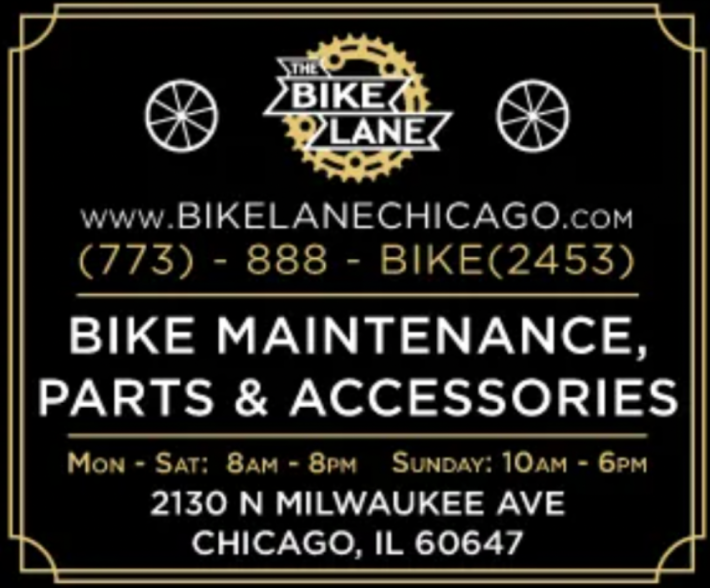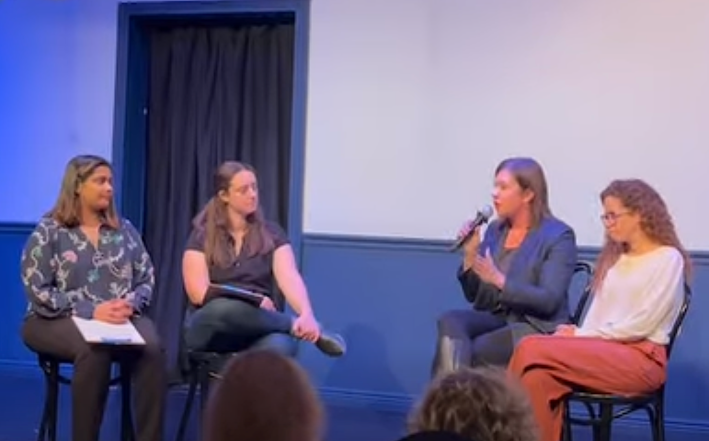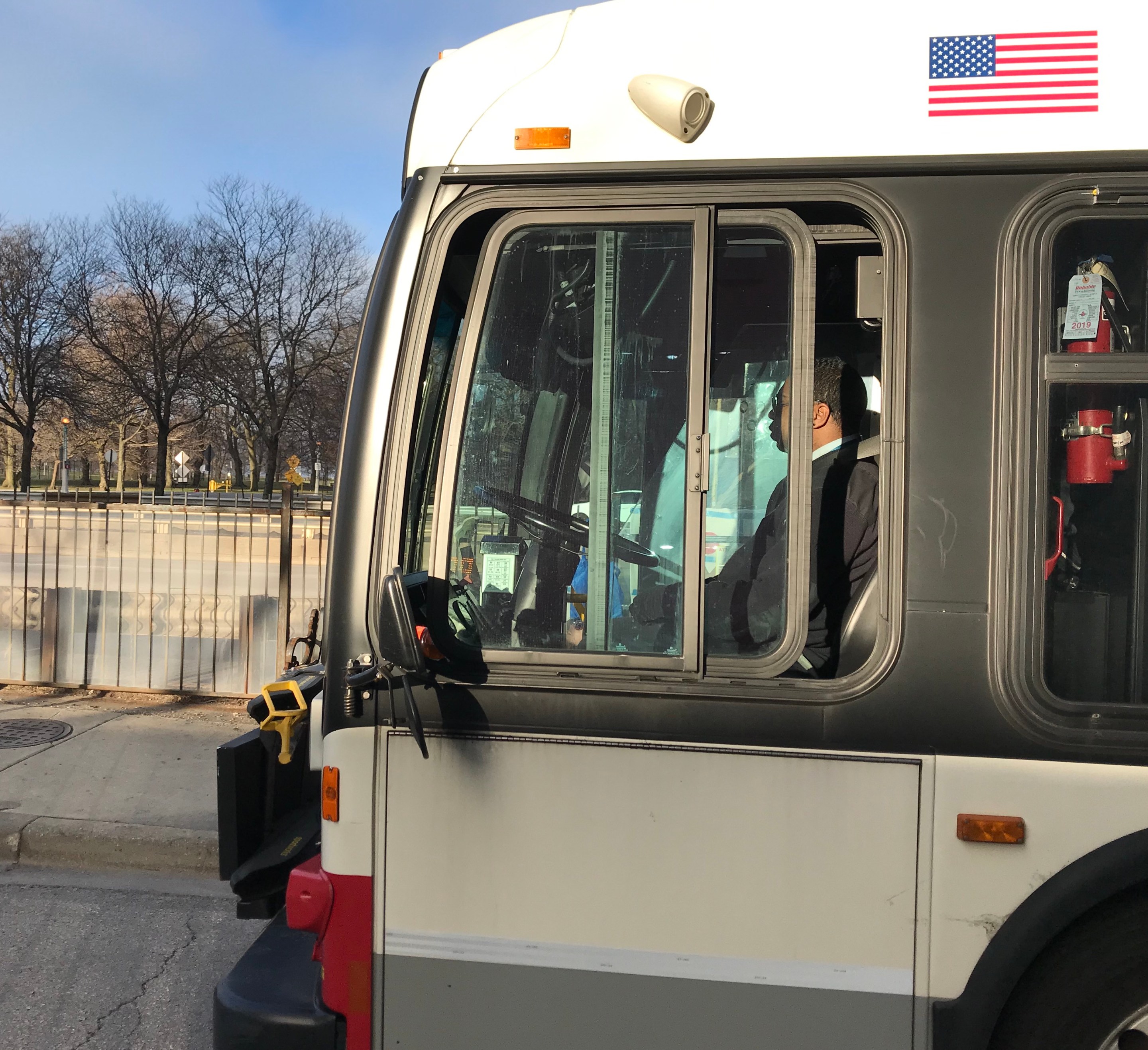
Usually in news stories about Chicagoland's looming transit fiscal cliff, which Springfield legislators resumed tackling in the fall veto session today, you hear from agency officials, public transportation advocates, and riders.
However, last Sunday's Worker and Rider Town Hall, hosted by Chicago DSA and Chicago Transit Justice Coalition, offered a window on what some current and former CTA employees think about the money chasm and working conditions. The latter describes itself as empowering "Amalgamated Transit Union Local 241 and Local 308 members with tools to take control of their unions and to inspire humble, accountable leadership," but doesn't officially represent ATU.
The event took place at the West Loop Public Library, 122 N. Aberdeen St. Among the Zoom attendees was sustainable transportation-friendly Ald. Daniel La Spata (1st), a Democratic Socialists of America member who chairs City Council's Committee on Pedestrian and Traffic Safety.
The MC was "Brother" Eric Basir, whose Twitter bio calls him "an inconvenient and annoying ATU Local 308 Executive Board Member." Any CTA managers who watched the meeting would probably consider that assessment to be accurate. "Unfortunately in the Chicago Transit Authority, we are under an iron fist of control and union-busting and we have to take initiative and step out and speak up," Basir said in his introduction.

Samantha Evans, a member of the local DSA chapter who's involved with its "Fix the CTA" initiative, kicked off the panel discussion by laying out the current challenges with the public transportation fiduciary canyon. "Our campaign was basically run out of the pandemic times where service was lagging behind," she explained. "And we were all just very frustrated, and we joined together to figure out what were the reasons for the dysfunction. In our first year of the campaign, we met a lot of these people here... and got to know the background of just how bad working conditions can be at CTA. And so in the years since then, we have been rallying for pro-worker initiatives, like making sure that at a basic minimum, workers are comfortable when they're at work, which means having access to bathrooms."
"Another thing we identified was having a more democratic process within the CTA," she added. "The CTA is governed by a board, and all of those people are appointed. None of them are workers."
Evans went to discuss the nuts-and-bots of the monetary abyss. "CTA has, a gap of $[771 million, although a recent projection put it at only $202 million] that they need to meet within the next year," she said. "And for every year after that, the gap will only widen. Chicago and Illinois ,unlike our peers in New York and other places, we don't... get as much funding from the state as other places, so the CTA relies primarily on fare box recovery. [Only 17 percent] of their [operations] budget comes from state funding."
"This was a problem even before the pandemic, but especially after [federal] COVID relief funds run out, there really will be just nothing available," she continued. "If nothing changes, we're going to be facing service cuts... and things like Paratransit for folks who have limited mobility go away... And again, this is not new. There has been years, decades of mismanagement and disinvestment in our public transit."
Evans called Illinois transit reform/funding bill HB 3438, which passed the Senate at the end of the spring legislative session last May, "a step in the right direction." But she added, [the proposed new Chicagoland umbrella agency, the Northern Illinois Transit Authority "doesn't have dedicated spaces for workers on any of the agency boards. There would be no worker input on what a [public] safety task force would look like, and really there's just no protection for workers in the state."
Evans concluded by mentioning that local transit agencies have been awarded Federal Emergency Management Agency counterterrorism grants that might require them to facilitate immigration enforcement. It's not clear yet whether the agencies are planning to accept this cash. "That means possibly seeing ICE on our trains and on our buses," she said. "We all deserve better than that. 'We keep us safe,' which means not having ICE or anyone else accosting people as they get to work."
Next, Thomas Elliot, a mechanic who works at the CTA's Kimball shop, said he faces major difficulties at work. "We are constantly fighting against management to do our job, to do our job right, and do our job to where it's not going to affect riders," he said. "We have ideas where that go into deaf ears. I'll give you an example. In our shop, we came up with a way to [maintain the 'L' car] hydraulic system. Anytime it goes below 20 degrees in Chicago, it just shuts down our whole yards full of trains."
"They they just want us to just continue forever to go out and reset this stuff," he said, adding that forces customers to wait on platforms in the cold. "A lot of that has to do with what we know how to fix. We know how to add heaters to the hydraulic system. We know how to correct this problem. Nobody wants to hear from us."
"I want to want to end with saying thank you for the DSA for getting the ear of [new CTA Acting President Nora Leerhsen]. "You know, we're getting somewhere. She's understanding that there's actually people riding these trains. Now the next step is, there's people fixing the trains, and there's people operating the trains. They're not there yet."

Fellow mechanic Chris Campisi told a similar story. "We're also fighting to do our jobs as well, like we're being told we need to rush and skip issues because they're not seen as too high of a priority," he said. "And some of them are safety-related issues. Some of them are just reliability-related things. But then if those things come back to bite us, like the train comes back a day or two later, the same thing, then that is reflecting on us instead of the manager who's trying to get us to ignore that kind of thing."
"And, of course, we're always having issues with equipment in the shop, Campisi added. "We never have what we need. It's always personally-owned tools. And using things wrong, like busted turntables that we have to push with a forklift, crazy stuff like that. I just hope things get better before someone gets hurt."
Jason Roberson, a rail car servicer at 98th Street shop, brought up concerns about personal safety. "We can clean the trains and we can service the trains, but I can't make you stop smoking on the trains," he said. "I can't make you stop doing drugs on the trains or drinking alcohol on the trains. The last thing we need is ICE on the trains. That is being played out almost in movie form." The crowd applauded.
Kathy Strzelecki, a former CTA worker who served the agency for 33 years and currently is a member of the Progressive Labor Party, also voiced concerns about militarized public space. "I came [to the town hall] all the way from Wisconsin on the Metra train," she said. "And when I got off the train, what did I see? four Military-Police type guys. It said police on their bags. They had camouflage uniforms on. They were not CPD. It wasn't that uniform. I was in the National Guard. It wasn't a National Guard uniform... They are trying to get us to feel it's normal to have this massive police presence and military police snatching people off the street."
Uba Light is a bus operator out of Forest Glen Garage, and an immigrant himself. He cited the phrase, "Things fall apart; the center can not hold," orginally from a William Butler Yeats poem, and used as an epigram in the semi-eponymous novel by Nigerian author Chinua Achebe. "He happens to be my mentor," Uba said. "My uncle. That book is read all over the world... Now how can the center not hold? Because people are afraid. People do not take responsibility. I remember during my own time in Africa when things were going wrong in South Africa, I was one of those to support and fight on behalf of Nelson Mandela."
"Now here in America, you consider why a lot of people are coming down to America is because America happens to be a safe place," he added. "But right now, my brothers and sisters here, I'm telling you, America is no longer safe. The center cannot hold any longer. The only way the center can hold is only when all of us come together to make a change."
After that, Robert Thomas, an "unjustly fired" CTA bus operator, spoke. "We fought for a while to get [unpopular recent CTA President Dorval Carter Jr.] out, he just left one six-figure job to go to a seven-figure job. So he's not really hurt. He doesn't care. Now we got this new [acting] president. She's Ms. Celebrity. She wants to be everywhere, taking pictures with everybody."
"But CTA is managed poorly," Thomas added. "They have too many managers, disciplining too many employees in each garage. They have about seven garages. Each garage has three levels of management. You have a lower transportation manager, then you have a business manager, and you have the senior manager. Each one of those transportation managers makes over $100K and it's about seven managers at each garage, and all they do all day is discipline."

"It's never about corrective action, corrective guidance," Thomas concluded. "It's always about discipline. That's what they spend most of the eight-hour day doing, disciplining bus operators like me... If CTA does any cuts I hope they start with the managers."
Current bus driver Nicole Williams said she has worked 28 years, and is currently based at the 103rd Street garage. "I think the CTA is more reactive than proactive with safety, and that's one of my biggest concerns," she said. "We go to work, we get robbed in CTA parking lots. But you all don't hear about that, because that's covered up. We get robbed at gunpoint, we get sick, and then we're forced to do things that we don't want to do, and we always get the blame. CTA will blame everything on the workers, like they said, 'Oh, we can't [provide service] because the workers don't want to come to work,' but the workers want to come to work. But under what conditions? So we have to be dead? You don't want a sick bus operator driving you, because that's going to cause a crash."
"And when [the managers] talk about 'ghost buses," they don't tell the truth about it, because they sit downtown at 567 [W. Lake St., the CTA headquarters] looking out the window, thinking," Williams added. "Why are there five or six busses traveling together?... Congestion is a big thing."
Aundra Thompson is a retired bus operator out of the 103rd Street garage, and a former union rep. "CTA used to be a good job," he said. "I am 59, and I left when I was 57. When I was 57 I had 34 years on the bus... And to be honest, it was really fun coming to work when I first started. I looked forward to going to work every day I was young. The CTA kind of looked out for their employees. When people wanted to quit when I first started, the managers would beg them to stay. Now it's a total flip. The managers get 100-something thousand a year, and their only job is to terrorize employees, to fire them, to make them uncomfortable. And it didn't used to be like that when I started."
"One of the reasons I left, because I was still was kind of young, was that I saw a death," Thompson shared. "I saw a person get killed, not on the bus, but they were minding their business on the street. They got killed in front of the bus, and then the person that hit and killed them started shooting. So that was a traumatic experience for me."
Erek Slater, a rep for Local 241 whom Eric Basir said "was unjustly fired multiple times," was the last speaker on the panel. "When you think about Chicago Transit Authority and Pace workers, really the working class in general, I actually want this in your mind. This is a pretty good cross section of maintenance workers, frontline bus operators, rail workers here, and you've got to be impressed. This is really an elite part of society. It is not downtrodden people who are just stepped on have no choice. And I think this is broadly true in the working class, but particularly in the case in Chicago Transit Authority."
Do you appreciate Streetsblog Chicago's paywall-free sustainable transportation reporting and advocacy? We officially ended our 2024-25 fund drive in July, but we still need another $42.5K+ to keep the (bike) lights on in 2026. We'd appreciate any leads on potential major donors or grants. And if you haven't already this year, please consider making a tax-deductible donation to help us continue publishing next year. Thank you!





